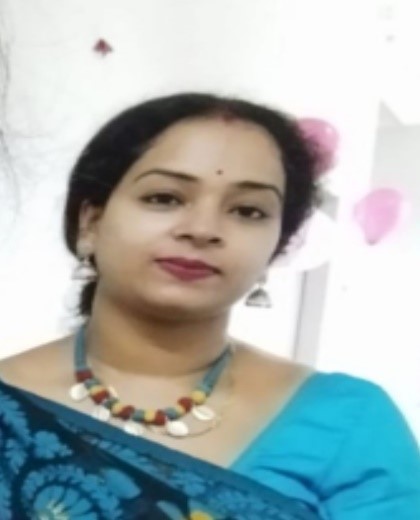dhupgurigirlscollege1@gmail.com
dhupgurigirlscollege1@gmail.com
The Department of Sociology at Dhupguri Girls’ College was established in 2019, offering a pass course to students. The first faculty member, Smt. Payal Paul, joined the department in 2019, followed by Asraful Rohoman, who joined as a visiting lecturer in 2023. Recently, with the support of our Hon’ble Principal, the department has introduced both Major and Minor courses.
The Department of Sociology is dedicated to the study of social life, social change, and the social causes and consequences of human behavior. We explore patterns of social relationships, social interaction, and aspects of culture that are integral to everyday life. Our purpose is to empower students to think critically about the social world, cultivating the values, skills, and desire to become engaged citizens in a complex, multicultural society.
The Sociology Department offers students a comprehensive understanding of sociological theories, concepts, and methods necessary for analyzing social phenomena. We strive to develop critical thinking skills in our students and encourage them to question assumptions about social life, providing them with the tools to understand and navigate the complexities of human social relationships and institutions.
Sociology covers a wide array of topics, ranging from crime to religion, family to the state, and social stability to radical societal change. The discipline’s unifying goal is to understand how human action and consciousness are shaped by, and in turn shape, surrounding cultural and social structures.
Sociology is an exciting and illuminating field of study that addresses critical issues at personal, societal, and global levels. It investigates the social causes and consequences of phenomena such as love, identity, conflict, deviance, aging, and faith. It also examines societal issues like crime, law, poverty, wealth, education, and social movements, while at a global level, it explores population dynamics, migration, conflict, and economic development.
Sociologists emphasize the careful gathering and analysis of evidence about social life to develop and enrich our understanding of key social processes. The research methods used by sociologists are varied, including observing the everyday life of groups, conducting large-scale surveys, interpreting historical documents, analyzing census data, studying video-taped interactions, interviewing group participants, and conducting laboratory experiments. These methods and theories yield powerful insights into the social processes shaping human lives, as well as social problems and prospects in the contemporary world.
By better understanding these social processes, we also come to understand more clearly the forces shaping our personal experiences and outcomes. The ability to see and understand this connection between broad social forces and personal experiences—what C. Wright Mills called “the sociological imagination”—is invaluable for living effective and rewarding personal and professional lives in a complex society.
Students trained in sociology learn how to think critically about human social life and ask important research questions. They are equipped to design robust social research projects, carefully collect and analyze empirical data, and effectively present their research findings. These skills enable them to help others understand the social world and envision how it might be improved.
More broadly, sociology students develop the ability to think, evaluate, and communicate clearly, creatively, and effectively—abilities that are highly valuable in a wide variety of professions.
Sociology offers a distinctive and enlightening way of seeing and understanding the social world. It looks beyond the taken-for-granted views of reality to provide deeper, more illuminating, and challenging understandings of social life. Through its unique analytical perspective, theories, and research methods, sociology expands our awareness and analysis of the human social relationships, cultures, and institutions that profoundly shape our lives and human history.

VISITING LECTURER
View Profile
VISITING LECTURER
View Profile| Program | Course Code | Course Name | Description |
|---|---|---|---|
| Major Course – 01 | USOCMAJ11001 | Introduction to Sociology – 1 | Acquaints students with basic concepts, social institutions, and the interconnection with other social sciences. |
| Major Course – 01 | USOCMAJ12002 | Indian Society – 1 | Familiarizes students with the socio-cultural components of Indian society, including caste, family, and marriage. |
| Minor Programme | USOCMIN10001 | Introduction to Sociology | Focuses on the origin, history, and basic concepts of sociology and its relationship with other sciences. |
| Minor Programme | USOCMIN10001 | Sociology of India | Provides an outline of Indian societal structures and processes, encouraging a sociological view of Indian reality. |
| SEC – 1st Semester | USOCSEC11001 | Sociology of Environment | Covers social causes of environmental issues and the environmental movement, focusing on the sociological aspects of these problems. |
| SEC – 2nd Semester | USOCSE12002 | Gender Sensitization | Develops an understanding of gender as a social construct, addressing gender biases, stereotypes, and violence. |
| MDC – 02 – 2nd Semester | UPOBMDC12038 | Sociology of Development | Focuses on development as part of social-cultural dynamism, examining the consequences of economic development on society. |
| Course Code | Course Title | Description |
|---|---|---|
| Dsc-01 | Introduction to Sociology | Students understand the basics of sociology, including social structure, social control, and its relationship with other social sciences. |
| Dsc-02 | Sociology of India | Explores social institutions like marriage, family, kinship, and religion, and their roles in Indian society. |
| Dsc-03 | Sociological Theories | Covers contributions of Indian sociologists and major social thinkers like Marx, Durkheim, Weber, and Spencer. |
| Dsc-04 | Techniques of Social Research | Focuses on research methods, data collection, and the role of social facts in research. |
| Dse-05 | Religion and Society | Examines sociological understanding of religion, its features, and influences, including secularism and communalism in India. |
| Dse-06 | Social Stratification | Introduces ideas of social inequality, stratification, mobility, poverty, gender, and exclusion. |
| Ge-01 | Gender and Violence | Explores concepts of gender and sex, women’s position in society, feminist theories, and issues related to women’s empowerment. |
| Ge-02 | Population and Society | Studies demographic concepts, population theories, and the relationship between population dynamics and societal structure. |
| Sec-01 | Sociology of Media | Analyzes media’s role, new methodologies, and its impact on society, focusing on media content transmission and reception. |
| Sec-02 | Visual Sociology | Explores visual dimensions of social life through digital cameras and recording technology, focusing on social phenomena and interactions. |
| 2023 | 2021 | 2022 | 2019 | 2020 |
|---|---|---|---|---|
| View Document | View Document | View Document | View Document | View Document |
| View Document | ||||
| Year | Assignment |
|---|---|
| 2024 | View Document |
| 2023 | View Document |
| 2022 | View Document |
| 2021 | View Document |
| 2020 | View Document |
| 2019 | View Document |
| Description | Link |
|---|---|
| 8.pdf | View Document |
| 7.pdf | View Document |
| 6.docx | View Document |
| 5.docx | View Document |
| 4.docx | View Document |
| 3.pdf | View Document |
| 2.docx | View Document |
| 1.pdf | View Document |
| Section | Description |
|---|---|
| Introduction to Pedagogic Techniques | Definition and significance of pedagogy in teaching and learning: Overview of various pedagogic techniques listed. |
| Lecture |
|
| Tutorial |
|
| Project Work |
|
| Debates, Discussions, Quiz |
|
| Community-Based Learning |
|
| Poster Presentation |
|
| Viva-Voce |
|
| E-Learning |
|
| Interactions with Experts |
|
| Assignment |
|
| Drawing Competition |
|
| Problem-Solving Methods |
|
| Teaching Methods |
|
| Assessment |
|
| Document Name | Link |
|---|---|
| SESSION 2020-21.pdf | View Document |
| DGC FINAL ROUTINE FOR 2ND 4TH & 6TH SEM 2023 AR 06022024.docx | View Document |
| DGC ROUTINE ,2022 AR 03022023.docx | View Document |
| SESSION 2019-20.pdf | View Document |
| DGC FINAL ROUTINE FOR 1ST 3RD & 5TH SEM 2023 AR 06022024.docx | View Document |
YEAR WISE STUDENT
| Year | Document |
|---|---|
| 2023 | View Document |
| 2022 | View Document |
| 2021 | View Document |
| 2020 | View Document |
| Course 5 | View Document |
| Course Name | Document |
|---|---|
| Add on Course on Community Development | View Document |
To cultivate critical thinkers, change agents, and empathetic leaders equipped to address societal challenges and promote social justice.
The Department of Sociology is committed to advancing knowledge, fostering critical inquiry, and promoting social change through rigorous research, innovative teaching, and community engagement.
| Goal | Objectives |
|---|---|
| 1. Enhance Academic Excellence |
|
| 2. Promote Research and Scholarship |
|
| 3. Empower Student Success |
|
| 4. Engage with Communities |
|
| 5. Embrace Diversity and Inclusion |
|
| 6. Advance Digital Literacy and Technological Innovation |
|
| 7. Promote Professional Development and Career Readiness |
|
| Strategy | Description |
|---|---|
| Establish Committees | Oversee the implementation of specific initiatives aligned with each goal. |
| Allocate Resources | Provide resources for faculty development, research grants, and student scholarships. |
| Conduct Assessments | Regularly assess and evaluate progress to identify areas for improvement. |
| Foster Collaboration | Encourage a culture of transparency, collaboration, and accountability among faculty, staff, students, and stakeholders. |
| Update Strategic Plan | Regularly update and communicate the strategic plan to ensure alignment with evolving departmental needs and priorities. |